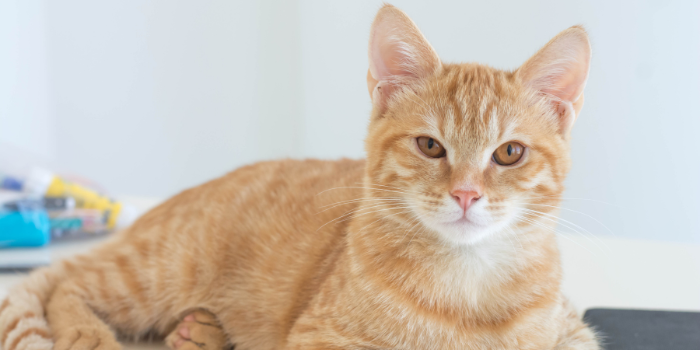If you’re a cat owner, there’s a good chance that you’re already aware of cat flu. However, here are four quick facts about cat flu that you might not know.
1. Cat flu isn’t caused by a single type of “bug”
The term “cat flu” refers to a collection of common upper respiratory illness symptoms suffered by affected cats, rather than one specific disease. The illness can be caused by several different viruses and bacteria, although 80% of cases are caused by feline calicivirus or feline herpesvirus.
Most cats with cat flu will develop symptoms of sneezing, with watery eyes and nasal discharge, and sometimes also a fever. If secondary bacterial infection develops (on top of the initial viral infection), the pet’s eye and nose discharge may become thicker and “snotty”. Cats infected with feline herpesvirus may also develop eye ulcers, whilst cats with calicivirus may develop tongue ulcers.
2. Cat flu can remain in your cat’s system long-term
Unfortunately, once infected with feline herpesvirus or calicivirus, some cats can retain the virus in their system forever, and can suffer a recurrence of flu symptoms in times of stress or long-term mouth inflammation problems.
3. Vaccination does not prevent cat flu, but will still help to protect your cat
The good news? Whilst vaccination will not fully prevent your cat from developing cat flu, it will help significantly reduce their symptoms of unwellness should they be exposed to feline herpesvirus or calicivirus.
4. Treatment is largely supportive
Unfortunately, there is no specific treatment for cat flu, although supportive veterinary and home care can help your cat to feel better sooner, and will reduce their chances of nastier complications (such as severe eye ulcers or pneumonia).
Depending on the affected pet’s symptoms, our vets may prescribe:
- Antibacterial eye ointment
- Antibiotics (if bacterial involvement is suspected)
- Hydration support
- Medications to reduce fever and pain
- Appetite stimulant medications
- Anti-viral medications (for more severe or recurrent cases)
For more help supporting your cat’s health, consult our cat-competent team!

